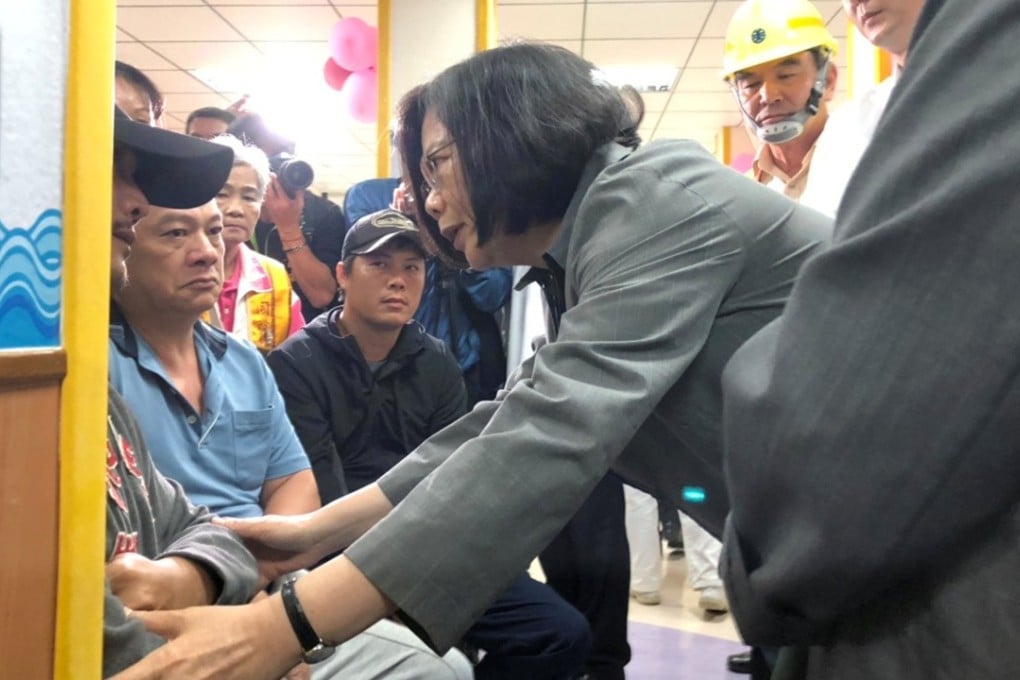Taiwanese President Tsai Ing-wen meets relatives of rail crash victims
• She joins Buddhist monks for prayers and consoles families
• Investigation into the crash’s cause begins as survivors demand answers

Taiwanese President Tsai Ing-wen offered words of comfort and encouragement on Monday as she met relatives of the 18 dead and 187 injured in a train derailment in the island’s northeast, its worst rail disaster in more than three decades.
Four carriages overturned on Sunday after all eight cars of a train carrying 366 passengers left the tracks on a bend near a railway station in Yilan county, officials said.
“We are really sorry … you have to stay strong,” Tsai told Chen Yu-chan, 41, whose only daughter, a seventh grader, was killed.
“We will do everything we can,” she said to another person, who was sobbing bitterly during Tsai’s visit to a county hospital.
Tsai joined Buddhist monks for prayers in front of an altar adorned with flowers next to the hospital, while relatives and friends of the victims wept nearby as they sifted through battered suitcases recovered from the train wreck.